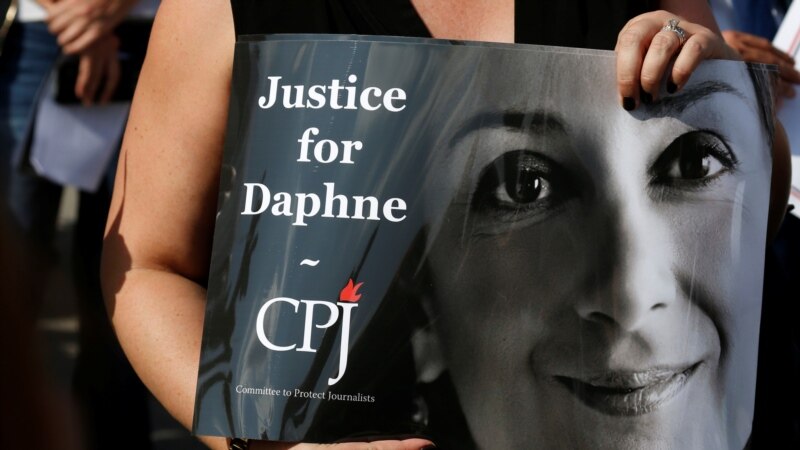
When Caroline Muscat filed Freedom of Information requests in Malta to access public contracts and payments to the director of a prominent media company, the agencies in Malta told her the information “does not exist.”
Muscat, founder and editor of a small independent news website called The Shift, appealed. After investigating, the Data Protection Commission ruled in her favor, ordering the agencies in July 2021 to share the information.
Instead, 40 government ministries and agencies sued The Shift, appealing the ruling.
Some of the lawsuits alleged that The Shift’s requests, filed in December 2020, amounted to harassment of officials, the news website reported.
“This is nothing more than an attempt to dissect our work and cripple us financially,” Muscat told VOA.
To fight the cases, the website needs to raise $40,185 — half of its yearly operational budget.
“We are a community-funded newsroom, and having to raise this amount of money in such a short period of time is close to impossible,” Muscat said.
The Maltese Embassy did not respond to VOA’s request for comment.
Legal fight
The use of mass lawsuits — known as Strategic Lawsuits Against Public Participation, or SLAPPs — to target journalists is not new.
At the time of her death in October 2017, the Maltese journalist Daphne Caruana Galizia was facing 48 libel cases — five criminal and 43 civil.
Many were filed by government officials, including former Prime Minister Joseph Muscat, who is unrelated to The Shift founder.
The Council of Europe criticized authorities for not immediately dismissing the cases after a car bomb killed Galizia, who came to prominence reporting on political corruption in Malta.
But the tactic is not confined to Malta. Over a decade, 570 cases of SLAPPs have been recorded in Europe, with the number increasing every year, according to data collected by the nongovernmental Coalition Against SLAPPs in Europe (CASE) and Amsterdam Law Clinics.
Oliver Money-Kyrle, head of Europe advocacy and programs at the International Press Institute, described SLAPPs as legal action “with the intent not of winning the case, but with the intent of silencing the person and intimidating them so they either settle out of court, or they withdraw what is being published.”
Corinne Vella of the Daphne Caruana Galizia Foundation — a nonprofit set up after her sister Galizia’s death — said the journalist’s experience aligned with this apparent lack of intent to win the cases.
“Eventually, the cases collapsed because [the plaintiffs] never turned up in court,” Vella said of the lawsuits against Galizia. “So, very clearly, they found excuses just to harass her.”
With The Shift’s case, Vella said it appeared to be “an orchestrated attempt to prevent any information from being accessed by The Shift and being made public.”
SLAPPs are “very effective” in hindering journalists’ work, according to Vella, because of how exhausting, expensive and time-consuming it can be to fend off so many cases.
“It makes you a target in more ways than one because once you’ve hit so many lawsuits, people can start to think that you’ve actually done something wrong,” Vella said. “And this certainly was the case for Daphne.”
Resource drain
The Shift has argued that its freedom-of-information requests are important to the public interest because they concern the administration of public funds. Since the 40 lawsuits were filed, 12 rulings have been issued, all in favor of the news website.
But those rulings are being appealed.
“You have 40 government agencies — and we’re talking 40 to 60 lawyers over there — that the government is paying to fight an individual newsroom,” Muscat said. “Why? Simply because it does not want to abide by, first of all, the Freedom of Information Act — its own legislation — and two, government-appointed bodies that have already ruled in our favor.”
The rise of SLAPPs in Europe has led to a heightened awareness of the lack of legislative safeguards against such practices.
Since Galizia’s killing, media groups and some members of the European Parliament have advocated for EU-wide legislation protecting journalists from SLAPPs.
In April, the European Commission proposed an anti-SLAPP directive that would allow judges to quickly dismiss such cases.
“[The experiences of] both The Shift and Daphne show very, very clearly just how important it is to have protection mechanisms built into law,” Vella said. “It’s not a matter of tinkering with existing legislation and adding clauses and provisions. There has to be a law that comprehensively protects people from abusive lawsuits.”
